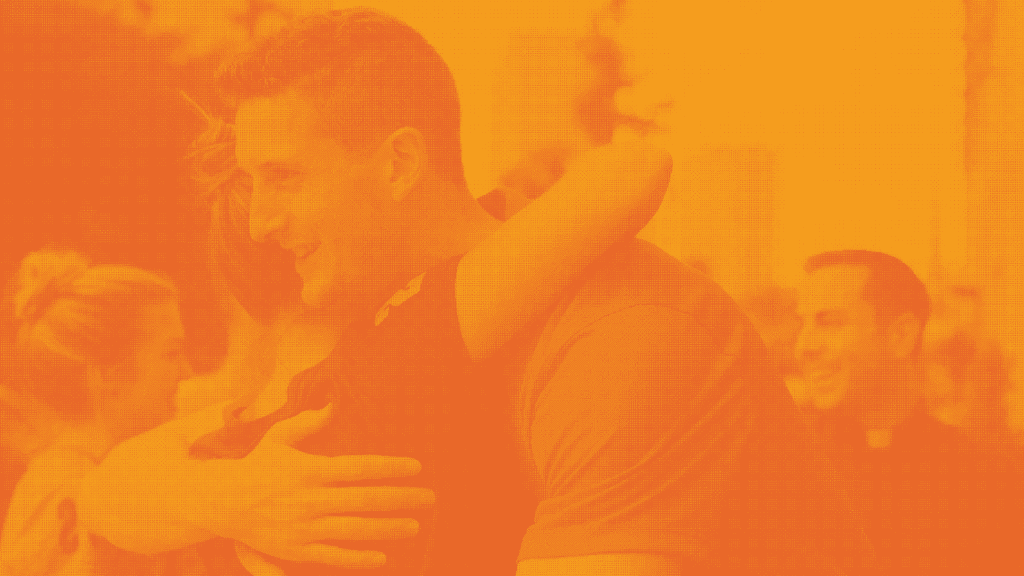I often catch myself appealing to my humanity as an excuse—like it is the thing that gets in the way of God and me. But what if it is in our humanity that Christ comes to meet us?
Whether we like to admit it or not, the reality of human brokenness permeates our world —suffering, pain, trauma, sin and evil do not discriminate. It can be easy to reduce our existence to sorrow. Especially, when considering the reality of the violations of human dignity that happen in abortion—women walking up the steps to end the life of their own child, teenagers being walked into abortion facilities by their parents, women weeping because they are being forced into a decision that they do not want to make and men passively allowing such atrocities to occur to the women they claim to love.
Yet, the human experience is also marked by moments of such joy. In my time as a pro-life missionary, I have seen these moments of hope break through—mothers turning away from abortion to save their child, men convincing the women they brought to choose another way, women finding the love and mercy of God after an abortion, abortion workers recognizing the evil of their work and finding a new profession and families receiving the care they need from the workers of pregnancy centers and churches.
The human experience can feel paradoxical. We use our brokenness as an excuse while also yearning to be more than we currently are. As Catholics, we are made complete in the Eucharist. The USCCB says it wonderfully about the Eucharist: “In being united to the humanity of Christ, we are at the same time united to his divinity.” Here, in the Eucharist, Jesus comes to meet us in our humanity because he knows our brokenness—he became broken, too. It is also here that Christ enters us and continues to raise us to something more—the newness of divine life.
During this Respect Life Month as it coincides with the National Eucharistic Revival, how can we imitate our eucharistic Lord by meeting those in need of the Gospel of Life in their broken humanity?
1. We must love human life.
While human beings are broken, even our imperfection cannot change the permanent words of God … in the beginning, he created creation as “good” and declared humanity “very good.” This goodness lies in what he made us to be, human beings in his own image. Even our brokenness cannot change what God intends for us to be. We are still “very good” in his eyes. God thinks that human beings are so good that he became man in the person Jesus Christ to save us. We must imitate Jesus by recognizing that those participating in abortion are worth bringing the Gospel of Life to because God has made them for goodness.
2. We must admit that we are broken.
It can be hard to admit to our own brokenness, but the reality is that we are broken. We may try to tell ourselves and others that we are just fine, but if we want to have a life-changing encounter with Jesus we must face our brokenness—this is where he comes to meet us. Since we are broken, God’s own heart is broken for us. His heart is fully revealed in Christ’s own sacred heart in the Eucharist—that out of love for humanity, Jesus suffered, died and was buried for us. Since our humanity is broken, Jesus became a broken man to save us. It is precisely in our brokenness that Christ comes to enter our hearts and be with us. If we are to bring the Gospel of Life to those caught in the snares of abortion, we must first allow our broken hearts to be united to Christ in the Eucharist.
3. We must hope by identifying with the broken.
Once we understand our own brokenness and allow Christ to enter our hearts, the divine love of God will propel us towards charity. Jesus Christ is life himself and resurrected from the grave, and any wound that he enters, he will transform into a testimony of life-changing redemption! If only we can bring the Gospel of Jesus, life himself, to those in desperate need of him—he can save them from the clutches of abortion. As Christians, we are people of hope, but bringing the message can be the hard part. Just as Jesus humbled himself to become man and save us, we too must choose to humble ourselves to identify with the broken. In bringing the Gospel of Life to those in need, we will weep for and with those who are choosing abortion. Christ chose to humble himself to identify with the broken to save us, so we must also humble ourselves and associate with the broken to see Christ work his healing in this world.
Ministering the Gospel of Life can be difficult and scary, but as Pope John Paul II said, “Be not afraid!” While we must continue to pray for the boldness to always spread Christ’s love and mercy, the Church has also provided many great avenues to learn how to spread the Gospel of Life in an effective and caring way.
Some practical ways you can share the Gospel of Life are: start or participate in a Walking with Moms in Need chapter at your local church, support the efforts of Project Rachel to help counsel and provide healing to those healing after abortion, bring the Gospel of Life to those outside of the abortion facility by sidewalk counseling with a local pregnancy center or mission group, pray for an end to abortion and the respect of the dignity of all human life, and take part in the Michigan Catholic Conference’s political activism for the sake of the protection of human life.
For more information please visit aod.org/prolife.
